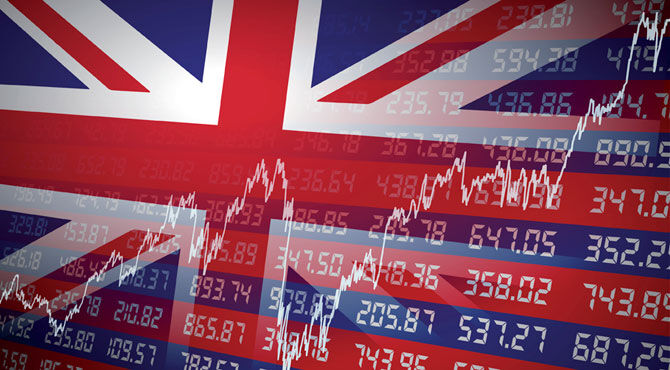UK inflation set to outstrip real wage growth
UK economic news: Consumer prices likely to continue to rise and like-for-like UK retail sales fell by one per cent last month, leading to a "disappointing end" to the first quarter for retailers.

ONS notes that rises offset by falling flight prices
Data from the Office for National Statistics (ONS) showed that rises in the cost of food and clothing last month were offset by falling flight prices.Jonathan Athow, ONS deputy national statistician, said, "Food, drink and clothing prices all rose in March. However, this is offset by air fares, which fell slightly but last year rose substantially thanks to the timing of Easter."The costs of raw materials and the price of manufactured goods leaving factories were both little changed, as falling fuel prices helped stem further rises."For the past two years, the price changes for food in the UK remained well below the other countries."This could be partly due to the supermarket price wars in the UK over this period which resulted in a downward pressure on food prices. However, all countries are now seeing an increase in food prices as a result of the upward trend in global food prices."BCC economist: consumer prices are likely to continue to rise
Suren Thiru, head of economics at the British Chambers of Commerce, commented, "The continued elevation in costs at the factory gate suggests that consumer prices are likely to resume their upward trend in the coming months."Businesses say they are facing an uphill struggle to absorb the increasing cost of imports – a task made more difficult by the raft of additional upfront costs imposed on businesses at the start of the new tax year. As a result, the rising price of imported raw materials are expected to increasingly filter through into higher prices, stifling consumer spending, a key driver of UK growth."It is probable that rising inflation helped weaken UK GDP growth in the first quarter of 2017, with growth likely to have slowed to 0.4 per cent, from 0.7 per cent in the previous quarter. The UK’s growth prospects are expected to remain subdued over the near term, as higher inflation continues to squeeze consumers and businesses.UK government should do more to ease cost pressures to companies
"Against this backdrop, it is vital that government does more to ease the cost pressures facing firms by tackling the burden of upfront costs and taxes associated with doing business in the UK. The MPC must also continue to ‘look through’ the expected rises in inflation and opt for an extended period of monetary stability. This will help businesses to continue to invest, recruit and support the wider economy."- Drop in UK output confounds analysts’ expectations
- Improvement in finance industry leads services sector rebound
- UK keeps interest rate at record low despite Fed hike
James Smith, ING Bank economist, said the continuing CPI rate was showing signs of overtaking wage growth, meaning that real incomes could be starting to fall.
ING Bank economist: inflation likely to rise above three percent
"Overall, we think that the effect of the weaker pound and higher fuel costs will drive inflation above three per cent in the second half of this year," he said."In tomorrow’s (Wednesday's) jobs report, we expect wage growth, excluding bonuses, to fall back to two per cent following some particularly weak 'single month' figures recently. In real terms, that means that disposable incomes will be falling, and we are seeing some signs that this is hitting spending."Ian Kernohan, economist at Royal London Asset Management, added, "The later date of Easter this year will have held back prices in March, thanks to the lower air fares. However, while the impact of rising oil prices last year is now fading, the full impact of sterling’s devaluation is still feeding through. We would expect the air fare effect to reverse next month, and CPI to move higher, further above the two per cent target."Coinciding with publication of the ONS data was a report from the British Retail Consortium (BRC) and KPMG showing that like-for-like UK retail sales fell by one per cent last month, compared to March 2016. Total sales dropped 0.2 per cent, representing the first decline since August last year.Paul Martin, UK head of retail at KPMG, said March proved to be a "disappointing end" to the first quarter for retailers. He said, "Food sales remained in the black for a full quarter, although this is largely being driven by rising inflation, so no reason for too much celebration."For more related news and features, visit our Enterprise section.Access hundreds of global services and suppliers in our Online Directory Get access to our free Global Mobility Toolkit
Get access to our free Global Mobility Toolkit 
©2025 Re:locate magazine, published by Profile Locations, Spray Hill, Hastings Road, Lamberhurst, Kent TN3 8JB. All rights reserved. This publication (or any part thereof) may not be reproduced in any form without the prior written permission of Profile Locations. Profile Locations accepts no liability for the accuracy of the contents or any opinions expressed herein.




































